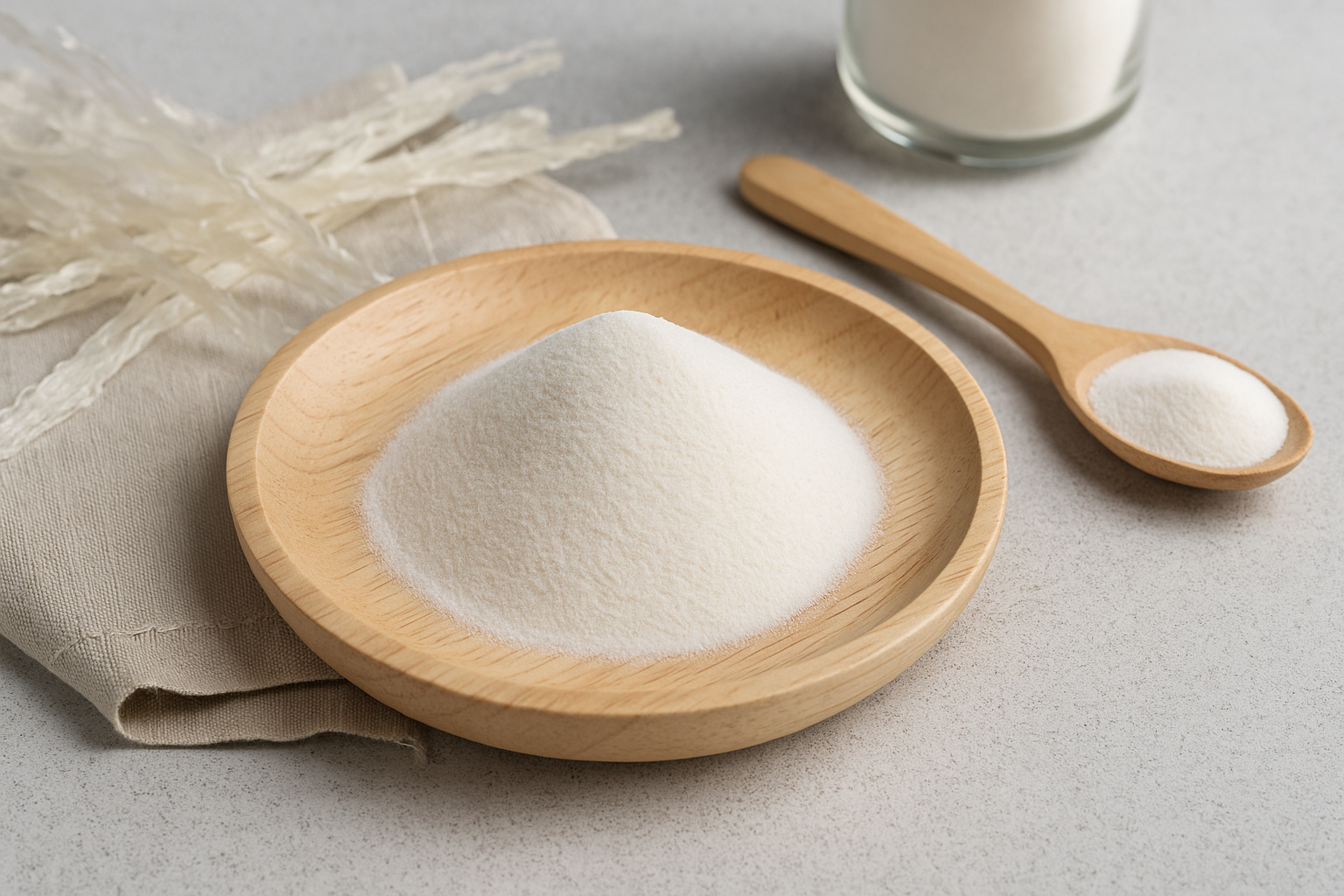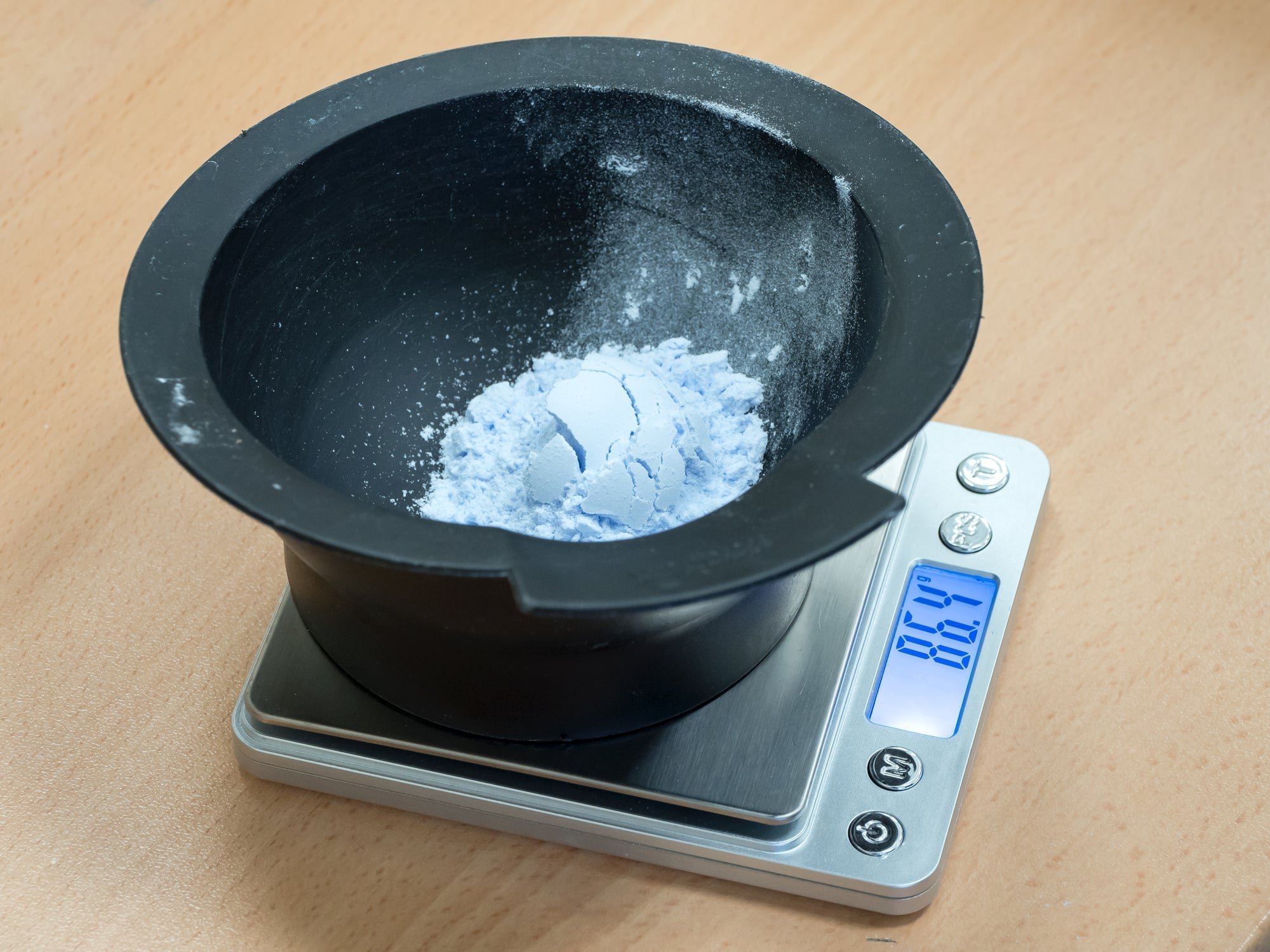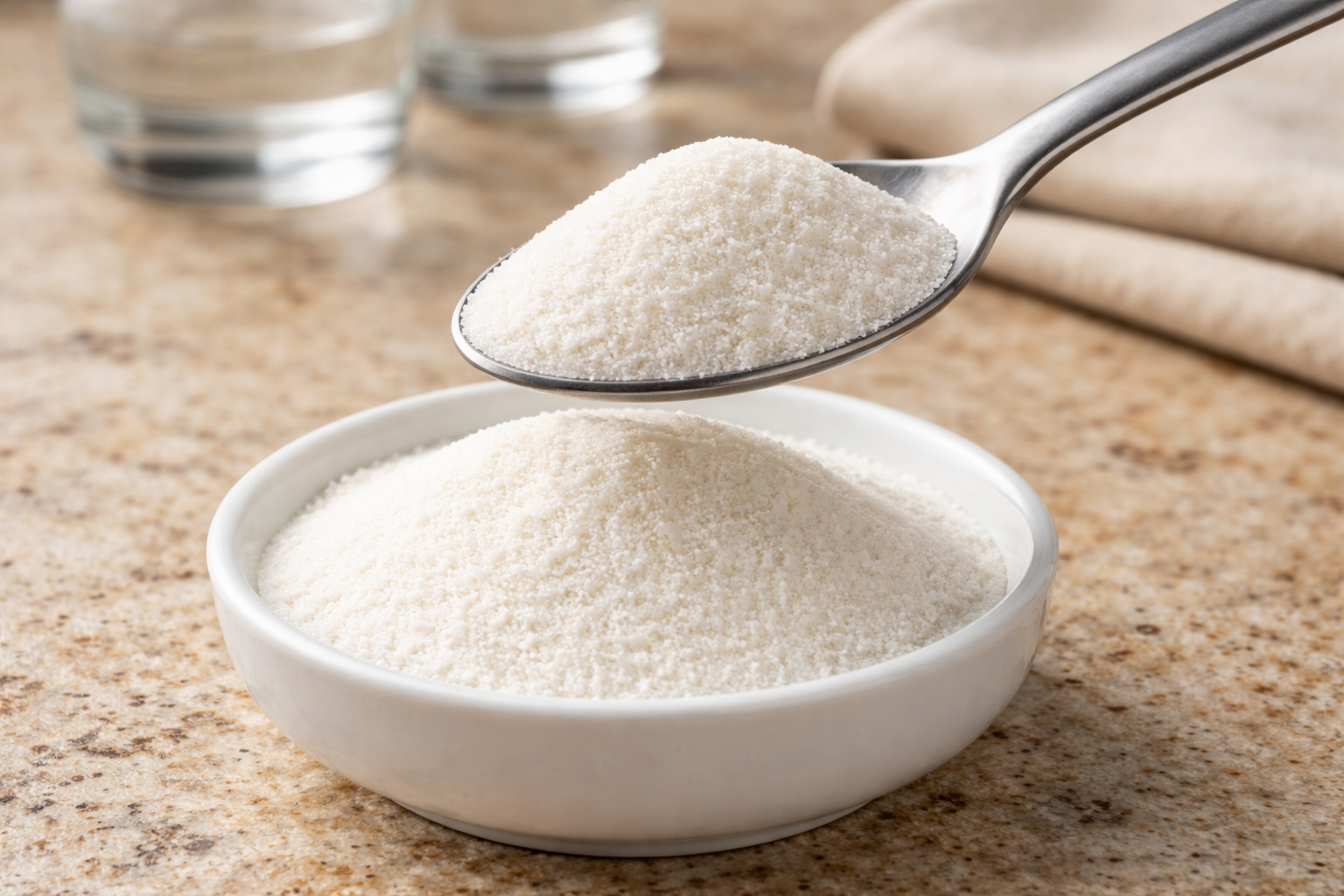
How Ascorbic Acid Works
SUBSCRIBE TO OUR BLOG
Promotions, new products, and recipes.
Ascorbic acid, also known as vitamin C, is a vital nutrient that plays numerous roles in maintaining overall health and well-being. It is essential for a healthy immune system and acts as a powerful antioxidant, protecting our cells from damage caused by harmful free radicals.
Let's take a closer look at the inner workings of ascorbic acid and how it benefits our bodies.
Key Takeaways
- Ascorbic acid is a nutrient commonly referred to as vitamin C.
- It is an essential component of our diet, necessary for a healthy immune system and antioxidant protection.
What is Ascorbic Acid?
Ascorbic acid, also known as vitamin C, is a water-soluble nutrient that plays an essential role in maintaining overall health. It is a powerful antioxidant that helps protect our cells from damage caused by harmful free radicals. Ascorbic acid also supports the immune system, promotes collagen production, and aids in the absorption of iron.
Chemically, ascorbic acid is a six-carbon lactone with two functional groups: a lactone ring and a hydroxyl group. It is commonly referred to as vitamin C because it was first isolated in the early 1930s from citrus fruits, which were found to prevent scurvy.
Vitamin C is not produced by the human body, so it must be obtained through diet or supplements. It can be found in a variety of fruits and vegetables, including citrus fruits, berries, melons, tomatoes, peppers, broccoli, spinach, and kale. Vitamin C supplements are also widely available and can be an effective way to meet recommended daily intake levels.
The Health Benefits of Ascorbic Acid
Ascorbic acid, also known as vitamin C, is an essential nutrient with numerous health benefits. Its antioxidant properties help protect the body against harmful free radicals, while its ability to boost the immune system makes it a crucial component of our daily diet.
One of the primary benefits of ascorbic acid is its role in collagen production. Collagen is a protein that is essential for healthy skin, joints, and connective tissues. Ascorbic acid is required for the body to produce collagen, making it a vital nutrient for maintaining skin elasticity, joint mobility, and overall tissue health.
Another significant benefit of ascorbic acid is its ability to enhance immune function. Vitamin C plays a critical role in the growth and function of immune cells, making it an essential nutrient for fighting infections and diseases. Studies have shown that vitamin C can reduce the duration and severity of common colds, as well as improve overall immune function.
As an antioxidant, ascorbic acid also helps protect the body against oxidative damage. Free radicals, produced during metabolism or exposure to pollutants and radiation, can cause cell damage and contribute to chronic diseases such as cancer, heart disease, and Alzheimer's. Vitamin C neutralizes these harmful free radicals, reducing the risk of chronic diseases and promoting overall health.
To ensure adequate intake of ascorbic acid, it is essential to consume foods that are rich in vitamin C. Fruits such as oranges, kiwi, and strawberries, as well as vegetables such as spinach, broccoli, and bell peppers, are excellent sources of vitamin C. Supplements can also be taken to meet daily requirements, especially for people who have difficulty consuming enough fruits and vegetables.
Freeze dried fruits and vegetables retain their ascorbic acid. Studies show that the losses during freeze-drying were of 8.13% for ascorbic acid and 0.63% for beta-carotene. So they may be used to maintain healthy amounts of ascorbic acid. such as freeze dried strawberries.
Overall, ascorbic acid plays a critical role in maintaining optimal health and well-being. Its numerous benefits as a nutrient and antioxidant make it an essential component of our daily diet. By incorporating vitamin C-rich foods and supplements, we can support our immune system, promote collagen production, and protect against oxidative damage.
Sources of Ascorbic Acid
The human body cannot produce ascorbic acid, so it is essential to obtain it through diet or supplements. Many fruits and vegetables contain high levels of vitamin C, making it easy to incorporate into a daily diet. Some of the best sources of ascorbic acid include:
| Food | Amount of Ascorbic Acid (per 100g) |
|---|---|
| Oranges | 53.2 mg |
| Kiwi | 92.7 mg |
| Strawberries | 58.8 mg |
| Broccoli | 89.2 mg |
| Red Bell Peppers | 127.7 mg |
Supplements are also available in the form of tablets, capsules, or powders. It is important to note that while supplements can be an effective way to increase ascorbic acid intake, it is always best to obtain nutrients from whole foods whenever possible.
For those who have difficulty incorporating enough vitamin C into their diets, supplementing with ascorbic acid can help ensure that their daily recommended intake is met.
Recommended Daily Intake of Ascorbic Acid
Ascorbic acid, commonly known as vitamin C, is an essential nutrient that our body needs to function correctly. The recommended daily intake of vitamin C varies, depending on factors such as age, gender, and overall health status. According to the National Institutes of Health (NIH), the recommended daily intake of vitamin C for adults is 75-90 mg per day for women and men, respectively.
However, some health conditions may require higher amounts of vitamin C intake. For example, smokers are advised to consume an additional 35 mg of vitamin C per day due to the increased oxidative stress caused by smoking. Pregnant and breastfeeding women also need higher amounts of vitamin C, with daily recommended intakes of 85 mg and 120 mg, respectively.
Meeting the daily recommended intake of ascorbic acid is essential for optimal health and preventing vitamin C deficiency, also known as scurvy. Scurvy is a severe condition that can cause fatigue, muscle weakness, and joint pain. It is rare in developed countries but can occur in individuals who have limited access to fruits and vegetables, which are excellent sources of vitamin C.
Ascorbic Acid and Immunity
Ascorbic acid, also known as vitamin C, is a crucial nutrient for maintaining a healthy immune system. It acts as a powerful antioxidant, protecting our cells from harmful free radicals that can damage them and weaken our immune response.
In addition to its antioxidant properties, ascorbic acid is also involved in the production and function of white blood cells, which are essential for fighting off infections and diseases. It helps to stimulate the production of antibodies, which are proteins that identify and neutralize harmful pathogens such as viruses and bacteria.
Studies have shown that ascorbic acid can reduce the duration and severity of common colds, particularly when taken at the onset of symptoms. It may also help to reduce the risk of developing respiratory infections, such as pneumonia, in individuals who are deficient in vitamin C.
To increase ascorbic acid intake and support a healthy immune system, it is recommended to consume foods rich in vitamin C, such as citrus fruits, strawberries, kiwis, and broccoli. Supplements may also be beneficial, particularly for those at risk of deficiency or who have a higher requirement for vitamin C due to illness or stress.
Ascorbic Acid and Collagen Production
Ascorbic acid, also known as vitamin C, plays a crucial role in collagen production. Collagen is a protein that forms the structural framework of our skin, joints, and connective tissues. Without adequate collagen production, our skin can become dry, saggy, and wrinkled, and our joints can become stiff and painful.
Ascorbic acid is needed for the synthesis of collagen, as it helps to convert proline and lysine amino acids into collagen fibers. Additionally, it acts as a cofactor for the enzymes involved in collagen synthesis and cross-linking, which stabilizes the collagen fibers and makes them stronger.
Studies have shown that ascorbic acid deficiency can lead to decreased collagen synthesis and impaired wound healing. Conversely, increasing ascorbic acid intake can improve collagen production and skin health.
It is important to note that collagen production naturally declines with age, and that smoking, excessive sun exposure, and poor diet can further accelerate this decline. By consuming adequate amounts of ascorbic acid through a healthy diet and possibly supplements, we can support collagen production and maintain healthy skin, joints, and connective tissues.
Ascorbic Acid as an Antioxidant
One of the key benefits of ascorbic acid, also known as vitamin C, is its powerful antioxidant properties. Antioxidants help to protect our cells from damage caused by free radicals, which can lead to oxidative stress and contribute to the development of chronic diseases such as cancer and heart disease.
As an antioxidant, ascorbic acid works by neutralizing free radicals and preventing them from causing damage. It can also regenerate other antioxidants in the body, such as vitamin E, making them more effective in protecting cells from oxidative damage.
Studies have shown that consuming foods high in ascorbic acid can help to reduce the risk of chronic diseases, such as heart disease and certain types of cancer. In addition, it may also help to slow down the aging process by protecting against damage to skin cells caused by sun exposure and environmental toxins.
It's important to note that while ascorbic acid is a potent antioxidant, it should not be considered a cure-all for all health issues. It's still important to maintain a healthy lifestyle by eating a balanced diet, exercising regularly, and getting enough sleep in order to support overall health and well-being.
Conclusion
In conclusion, we hope that this article has shed some light on the essential role of ascorbic acid in maintaining optimal health. As a vital nutrient and powerful antioxidant, vitamin C is necessary for supporting our immune system, promoting collagen production, and protecting against oxidative damage. By incorporating ascorbic acid-rich foods such as citrus fruits, berries, and leafy greens into our daily diet, we can ensure that we are meeting our recommended daily intake of this important nutrient. For those who may have difficulty getting enough vitamin C from food alone, supplements can also be a viable option. It is important to note that while ascorbic acid is beneficial to our health, it should not be viewed as a cure-all for any specific condition. As with any nutrient, a balanced and varied diet is key for overall well-being. In summary, let us remember that ascorbic acid is a crucial nutrient that plays many important roles in our bodies. By making a conscious effort to incorporate vitamin C-rich foods and supplements into our daily routine, we can take proactive steps towards maintaining optimal health and vitality.
FAQ
Q: How does ascorbic acid work?
A: Ascorbic acid, also known as vitamin C, works as a nutrient and a powerful antioxidant in our daily diet. It helps support our immune system, promotes collagen production, and protects against free radicals.
Q: What is ascorbic acid?
A: Ascorbic acid is a form of vitamin C. It is a nutrient that plays an important role in our overall health and well-being.
Q: What are the health benefits of ascorbic acid?
A: Ascorbic acid has numerous health benefits. It boosts the immune system, promotes collagen production, and acts as an antioxidant to protect against free radicals and oxidative damage.
Q: What are the sources of ascorbic acid?
A: Ascorbic acid can be found in various sources. Fruits, vegetables, and supplements are rich in vitamin C and can be incorporated into our daily diet.
Q: What is the recommended daily intake of ascorbic acid?
A: The recommended daily intake of ascorbic acid varies depending on age groups. It is important to meet these requirements to maintain optimal health.
Q: How does ascorbic acid strengthen the immune system?
A: Ascorbic acid strengthens the immune system by fighting off infections, reducing the duration of common colds, and supporting overall immune function.
Q: What is the role of ascorbic acid in collagen production?
A: Ascorbic acid plays a crucial role in collagen production, which is essential for healthy skin, joints, and connective tissues.
Q: What are the antioxidant properties of ascorbic acid?
A: Ascorbic acid acts as an antioxidant, neutralizing harmful free radicals, reducing oxidative stress, and helping protect against chronic diseases.


|
About the Author Ed is the founder of Cape Crystal Brands, editor of the Beginner’s Guide to Hydrocolloids, and a passionate advocate for making food science accessible to all. Discover premium ingredients, expert resources, and free formulation tools at capecrystalbrands.com/tools. — Ed |
Enjoyed this post? Subscribe to The Crystal Scoop
Food-science tips, ingredient know-how, and recipes. No spam—unsubscribe anytime.
- Choosing a selection results in a full page refresh.



